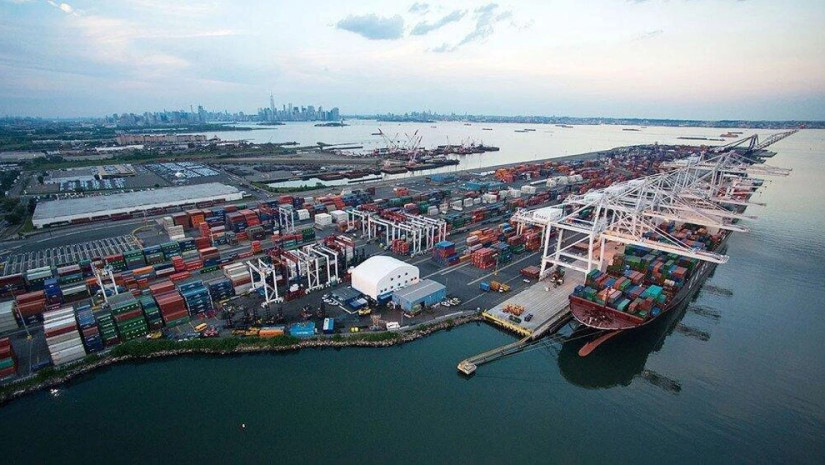In 2020, EU ports handled around 3.3 billion tonnes of goods in gross weight, a substantial decrease compared with 2019 (-7%). This fall can be attributed to the COVID-19 pandemic and the subsequent restrictions put in place across the Member States and worldwide.
After reaching a new peak in 2019 (3.6 billion tonnes), the gross weight of goods handled in EU main ports in 2020 decreased to levels similar to 2015. The last two quarters of 2019 and all quarters of 2020 showed a negative evolution when compared with the same quarters of the previous year. The second and third quarters of 2020 were particularly hit with decreases of -13% and -8%, respectively, Eurostat reports.
In 2020, EU ports handled around 3.3 billion tonnes of goods in gross weight, a substantial decrease compared with 2019 (-7%). This fall can be attributed to the COVID-19 pandemic and the subsequent restrictions put in place across the Member States and worldwide.
After reaching a new peak in 2019 (3.6 billion tonnes), the gross weight of goods handled in EU main ports in 2020 decreased to levels similar to 2015. The last two quarters of 2019 and all quarters of 2020 showed a negative evolution when compared with the same quarters of the previous year. The second and third quarters of 2020 were particularly hit with decreases of -13% and -8%, respectively.
The Netherlands remained the largest maritime freight transport country in the EU in 2020. Dutch ports handled 558 million tonnes of goods, 17% of the total volume of seaborne goods handled last year in the EU. The Netherlands was followed by Italy and Spain, each with a share of 14%.
Rotterdam, Antwerpen, Hamburg, Amsterdam, Algeciras, Marseille, Valencia and Trieste maintained their positions as the eight largest freight ports.
However, only Valencia (+0.5%) handled more tonnes of goods compared to 2019. All the other ports saw a decrease in tonnes handled compared with 2019, with Amsterdam (-14%), Rotterdam and Hamburg (both -7%) registering the most significant drops.
However, only Valencia (+0.5%) handled more tonnes of goods compared to 2019. All the other ports saw a decrease in tonnes handled compared with 2019, with Amsterdam (-14%), Rotterdam and Hamburg (both -7%) registering the most significant drops.














